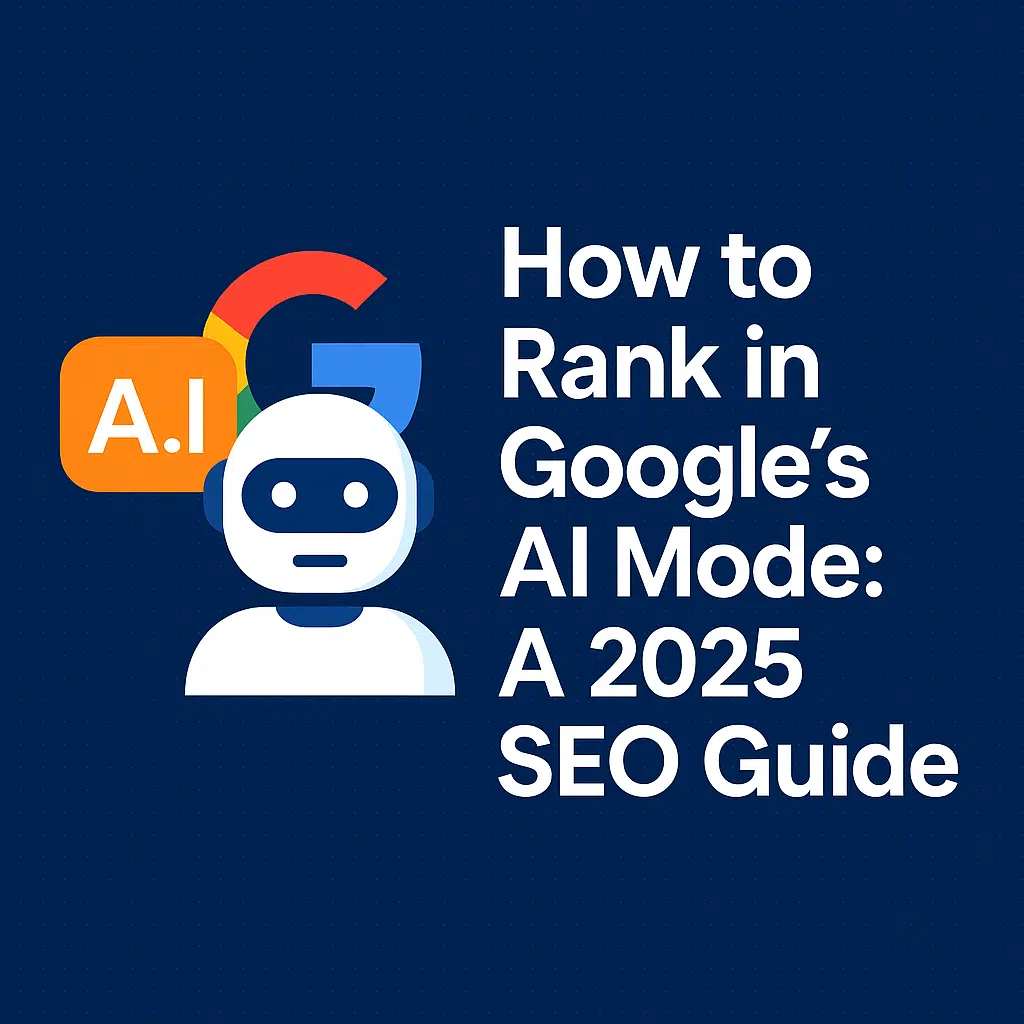How to Rank in Google's AI Mode: A 2025 SEO Guide
As Google integrates AI more deeply into search with its Search Generative Experience (SGE), understanding how to rank in Google’s AI mode is becoming essential for SEO professionals and marketers. Our AI SEO Agency guide explores how to optimize content and strategy for visibility in an AI-powered search landscape.
What Is Google’s AI Mode (SGE)?
Understanding Search Generative Experience
Google’s AI mode, also known as SGE, uses artificial intelligence to generate comprehensive search results by synthesizing information from multiple sources. Instead of returning traditional links, AI mode presents summarized answers, insights, and even interactive content.
Key Differences from Traditional Search
Unlike traditional search, where ranking was heavily tied to backlinks and keywords, SGE prioritizes context, semantic relevance, and user intent. It aims to provide answers, not just links.
Why Google’s AI Mode Matters for SEO
Shifting User Behavior
Users are increasingly expecting instant, authoritative answers directly within search results. This trend reduces click-throughs to traditional web pages.
SERP Real Estate Changes
AI-generated answers often occupy premium SERP space, pushing organic listings further down. Ranking in these results means maintaining visibility.
Core Ranking Factors in AI-Powered Search
Content Quality & E-E-A-T
Google continues to emphasize Experience, Expertise, Authoritativeness, and Trustworthiness (E-E-A-T). Content must be accurate, well-sourced, and written by credible authors.
Conversational Relevance
AI mode thrives on natural language. Content should answer common questions in a conversational, user-focused tone.
Structured Data & Schema Markup
Implementing structured data helps Google understand your content contextually, increasing the likelihood of being featured in AI summaries.
Optimization Strategies to Rank in AI Mode
Answer Questions with Precision
Target specific user queries with clear, direct answers. Use headers and bullet points to improve scannability.
Optimize for Semantic and Contextual Relevance
Focus on related topics, synonyms, and user intent rather than keyword stuffing. Use tools like Google’s NLP API to gauge contextual relevance.
Enhance Technical SEO & Core Web Vitals
Ensure your site is fast, mobile-friendly, and technically sound. These are still foundational to all ranking models.
Utilize FAQs and Featured Snippets
Include FAQ sections and structure answers for potential inclusion in snippets. Use schema markup to boost visibility.
Tools & Techniques for AI-Ready Content
Leverage tools like:
-
Google Search Console: for performance insights
-
Surfer SEO and Frase: for content optimization
-
Schema.org: to implement structured data
Common Mistakes to Avoid in the AI Era
-
Ignoring content quality in favor of volume
-
Neglecting schema and structured data
-
Over-optimizing for outdated ranking factors
Future-Proofing Your SEO Strategy
SEO will continue evolving. Focus on:
-
Building topical authority
-
Investing in expert-driven content
-
Adapting quickly to algorithm updates
Final Thoughts + Call to Action
Ranking in Google’s AI mode requires a shift in mindset. Prioritize quality, context, and user-centricity. Stay informed and be ready to iterate your strategy as AI in search continues to evolve.
Want to ensure your content ranks in the age of AI? Explore our advanced AI-powered SEO services today.
FAQs
What is Google’s AI search? It’s a feature that uses generative AI to summarize and present answers within search results.
How does AI mode affect keyword rankings? It emphasizes context and user intent over exact match keywords.
Can small sites rank in Google’s AI results? Yes, by focusing on high-quality, expert content and leveraging structured data effectively.
